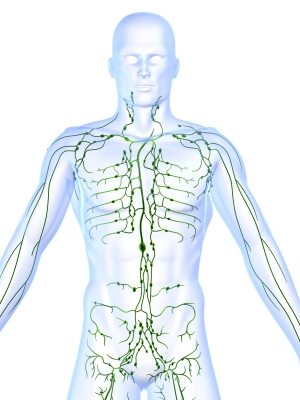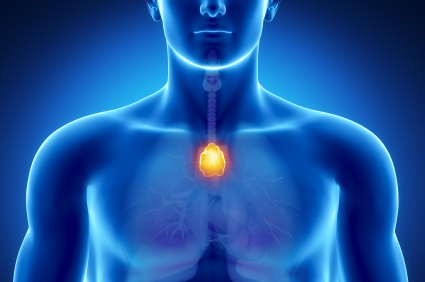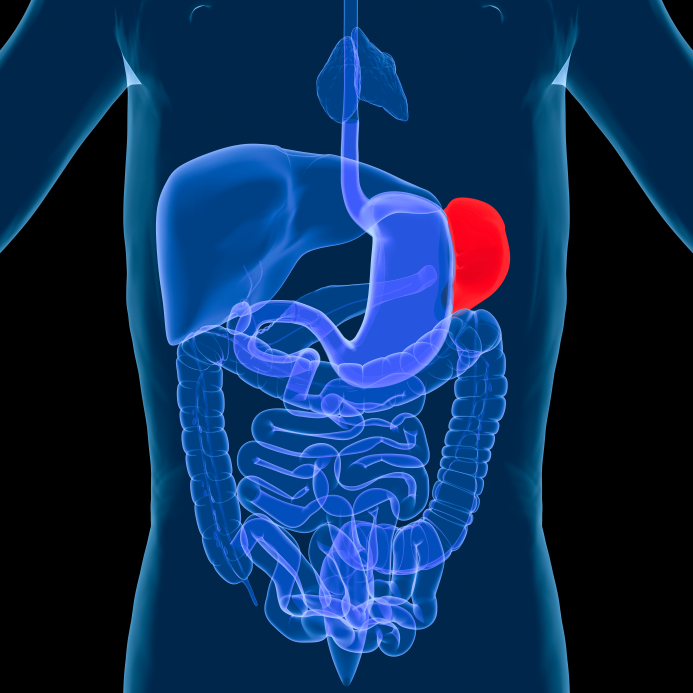It goes without saying that we live in a world full of germs, bacteria, and diseases which are present in our immediate surroundings and that we encounter in our daily lives. From the dirt we encounter to the different forms of pollution we live with to virus-carrying and bacteria-spreading agents such as insects that go by without notice, the probability of coming into contact with something unhealthy for you is almost always a constant. It is then a great wonder that, despite all of these opportunities for sickness and illness in our lives, our bodies are able to naturally remain relatively healthy and well guarded against such diseases, able to fight back even when we become infected with viruses and bacteria.
If you’re wondering how all of this is possible, you don’t have to look far for the reason why we can stay so healthy despite being in the presence of so much un-health; all you need to do is look in a mirror and see your own body. Each of our bodies contains an immune system, a sort of natural defensive mechanism our bodies have that protects us from external and internal factors that might compromise our health. The immune system is made up of a structure of organs that work together in order to keep our body as healthy as it can be, including lymph nodes, bone marrow, thymus, and the spleen.
Lymph Nodes

A lymph node is an organ that looks like a bean and measures anywhere from 1 to 2 centimeters. It mainly contains numerous cells that are essential to supporting your immune system. These cells are white blood cells whose main purpose is to act as the defenders of your body against any possible bacteria or pathogen that might harm it. In these white blood cells you can find lymphocytes and macrophages.
Lymphocytes, which include the B, T, and Natural Killer cells, often act as the first-response defenders of your body, identifying what are and what are not part of your body and almost immediately locating and dealing with them. Macrophages, on the other hand, are a more versatile type of cell which are tasked with clearing our body of dead cells, providing antigens to counteract pathogens, and further encouraging the lymphocytes in our immune system.
Lymph nodes are not just one single organ in your immune system. Rather, they are scattered throughout your body in order to be able to respond to infected areas faster and disperse the appropriate cells to meet your body’s specific needs. Certain lymph nodes, however, such as the ones located in the lungs or in the head and neck area, can have specific tasks to fulfill relative to the organ it is in proximity to.
Lymph nodes are the centers that facilitate the action of white blood cells. Whenever there is an infection in your system, your body sends the rest of the white bloods cells from other lymph nodes to the lymph node which is currently fighting the infection. This increase of white blood cells will cause a lymph node to become inflamed. The inflammation in your lymph nodes can also be used to identify certain illnesses and can even be used to determine the stage of cancer.
If your lymph nodes begin to fail, your entire immune system will be affected. This is because your lymph nodes carry the appropriate cells that fight off bacteria and pathogens in your body, which is the basic defense of your immune system. You usually do not have to take any special precautions to take care of your lymph nodes. However, cases of painful lymph nodes due to inflammation can be treated with antibiotics.
Bone Marrow
Bone marrow, as the name suggests, is the fatty tissue found within the larger bones in our body. There are two different kinds of bone marrow in our body – red bone marrow and yellow bone marrow, also more formally known as the medulla ossium rubra and the medulla ossium flava, respectively. The red bone marrow can be found in the smaller, flatter bones while the yellow bone marrow can be found within the vacant spaces within the larger bones.
Our bone marrows perform a wide variety of tasks, chief of which is the production of blood cells and platelets. The importance of red blood cells and platelets to our body’s circulation and general upkeep does not need to be stressed. However, the bone marrow also helps our immune system by producing the white blood cells that our lymph nodes use. Along with the thymus, which will be discussed later on, the bone marrow is one of the main initial producers of lymphocytes in our system.
Bone marrow transplants are quite common among cancer patients and patients with diseases that diminish the body’s production of blood cells. Along with other goals such as helping increase a person’s platelet count, bone marrow transplants are undertaken to help strengthen the patient’s immune system.
Unfortunately, the bone marrow is subject to numerous diseases and infections. Tuberculosis, leukemia, and exposure to radiation are often culprits in the weakening and waning of the bone marrow and the blood cells it produces. If the bone marrow is not taken care of and is unable to produce the adequate amount of blood cells for the body, then the rest of the immune system will take a hit since it is the white blood cells and lymphocytes that provide the backbone of our immune system.
Like the lymph nodes, you usually do not have to do anything in particular aside from the usual healthy lifestyle to take care of your bone marrow as it will take care of itself. Patients who have undergone bone marrow transplant, however should follow their doctor’s instructions so that they may achieve a full and speedy recovery.
Thymus

The thymus is an organ that has a more specialized function with regard to our body’s immune system. It is the thymus that helps the previously mentioned T cells develop and enables them to function as protectors of the body. This is accomplished through the genetic rearrangement of the receptors in the T cell during its maturation phase in the thymus.
Unlike most organs in the immune system, the thymus reaches its maximum potential during the childhood years of a person into puberty, eventually undergoing atrophy past the teen-aged years and becoming almost indistinguishable from the other tissues that surround it by the time a person reaches old age. This is because a large majority of the total stock of T cells are already produced and accumulated in the early years of life, so the thymus is less and less used as the years go on.
If the thymus is compromised while a person is still young, it could result in the person experiencing deficiencies in his or her immune system and becoming extremely vulnerable to infections and other sicknesses later on in life. Since the thymus deteriorates as the person gets older, maintaining it is not as difficult and defects in the thymus are often genetic and can be detected through medical check-ups.
Spleen

The spleen may perhaps be one of the less necessary organs in the immune system as a person can still be completely healthy even after the removal of the spleen. However, this is not to downplay the importance of the spleen. This is because the spleen acts as a sort of filter for the blood.
The spleen is responsible for the removal of old, dead blood cells and storing extra blood in case the body is suddenly in need of it. Since it stores blood, it also follows that it stores white blood cells, lymphocytes, and other cells of the body that are essential cogs in the body’s immune system. Aside from storing these important cells, the spleen is also able to produce them. This function of the spleen, however, becomes less important as other organs take over when the person grows up.
As previously mentioned, removing the spleen is not a life or death scenario and it is a very viable and rational option in case complications with the spleen arise. Spleen failure at a young age can produce difficulties in maintaining the health of the body and the strength of its immune system, but it is not on as critical a scale as the failure of other organs in the immune system.
Taking Care of Your Immune System
Though you do not have to follow specific instructions and steps in order to take care of your immune system and the organs that comprise it, there are some general guidelines that you can follow to ensure that you are giving your immune system the best possible conditions to work in.
The most basic way you can take care of your immune system is by having the proper diet. By eating the right food, you are providing your body with vitamins, minerals, and anti-oxidants that it can use to further supplement and strengthen your immune system. You can do this by eating your share of fruits, vegetables, and whole grains. You should avoid junk food as much as possible and have a stable and steady source of meat and protein in your diet. Do note, however, that while meat is an important part of our diet, it should be eaten in moderation as the fat it contains hinders the immune system.
Another way you can help your own body out is by learning to remove the unnecessary stress in your life. It has been proven that extreme amounts of stress do have physical consequences on your body. Overstressing creates an imbalance of chemicals in your body which will harm your immune system. A weakened immune system will lead to illness, which in turn will most likely lead to further stress, so it is important to stop this cycle at the very start.
Obviously, along with diet comes exercise. Regular, consistent exercise encourages your body to release its natural vitamins and anti-oxidants which will further fortify your immune system and, at the same time, burn away the fats that hinder it. Exercise is also a productive way through which you can de-stress yourself and forget about your problems, thus killing two birds with one stone.
An Unsung Hero
Our body’s immune system often goes by unnoticed and unappreciated despite its numerous important contributions to our everyday living. Hopefully, after reading this article, you will have gained a deeper understanding of your very own immune system and how it is helping you stay as healthy as you can possibly be. The better you understand your immune system, the better you will understand the tendencies and capabilities of your body. Though this knowledge may seem unimportant at first, it is often the little, unobserved things that actually keep our bodies together.

Leave a Reply